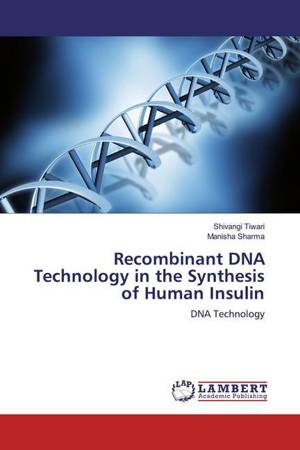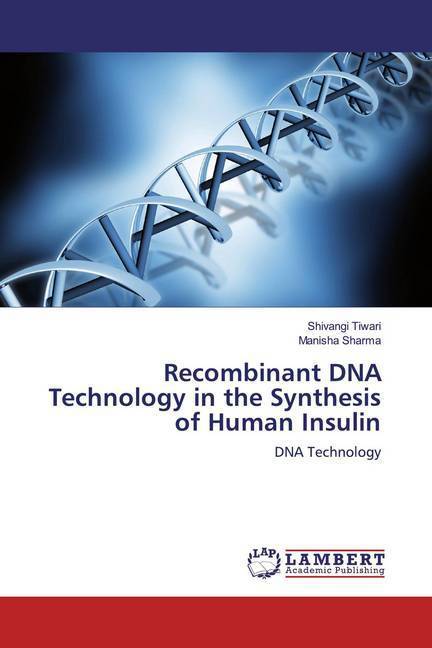
- Afhalen na 1 uur in een winkel met voorraad
- Gratis thuislevering in België vanaf € 30
- Ruim aanbod met 7 miljoen producten
- Afhalen na 1 uur in een winkel met voorraad
- Gratis thuislevering in België vanaf € 30
- Ruim aanbod met 7 miljoen producten
Recombinant DNA Technology in the Synthesis of Human Insulin
DNA Technology
Shivangi Tiwari, Manisha Sharma
Paperback | Engels
€ 39,45
+ 78 punten
Omschrijving
Insulin is a hormone that regulates the amount of glucose (sugar) in the blood and is required for the body to function normally. Insulin is produced by cells in the pancreas, called the islets of Langerhans. These cells continuously release a small amount of insulin into the body, but they release surges of the hormone in response to a rise in the blood glucose level. The major use of producing insulin is for diabetics who do not make enough or any insulin naturally. Human insulin is grown in the lab inside common bacteria. Escherichia coli is by far the most widely used type of bacterium, but yeast is also used. Researchers need the human protein that produces insulin. Manufacturers get this through an amino-acid sequencing machine that synthesizes the DNA.
Specificaties
Betrokkenen
- Auteur(s):
- Uitgeverij:
Inhoud
- Aantal bladzijden:
- 52
- Taal:
- Engels
Eigenschappen
- Productcode (EAN):
- 9786139950874
- Uitvoering:
- Paperback
- Afmetingen:
- 150 mm x 220 mm
- Gewicht:
- 96 g

Alleen bij Standaard Boekhandel
+ 78 punten op je klantenkaart van Standaard Boekhandel
Beoordelingen
We publiceren alleen reviews die voldoen aan de voorwaarden voor reviews. Bekijk onze voorwaarden voor reviews.










